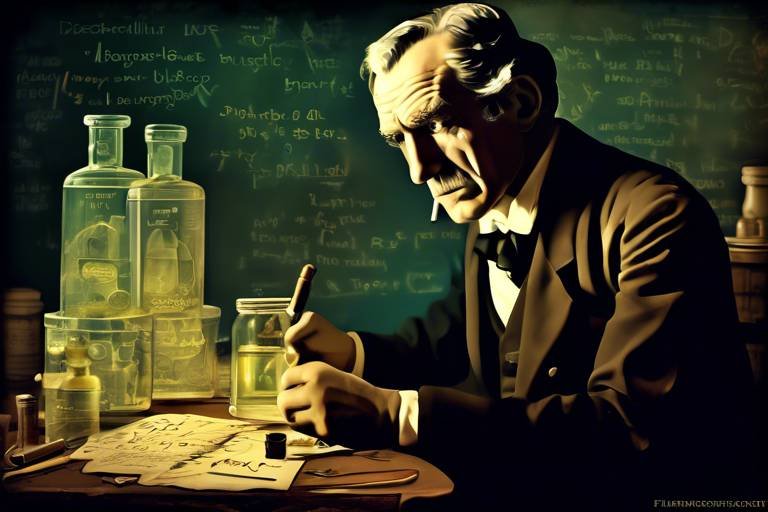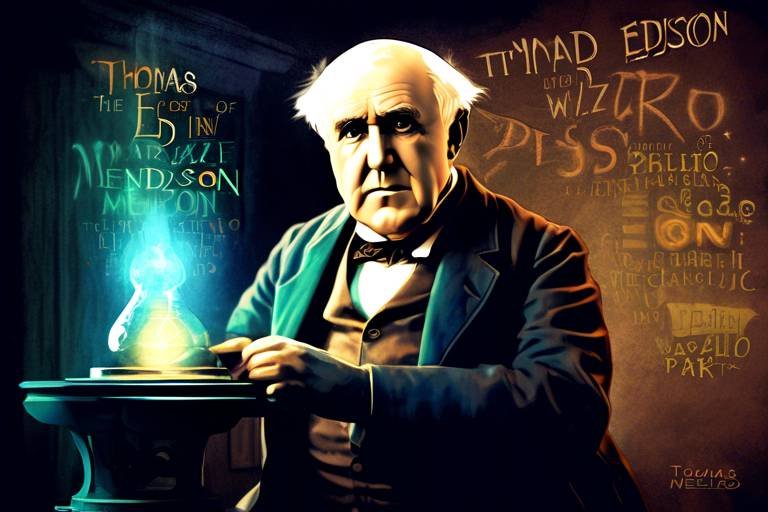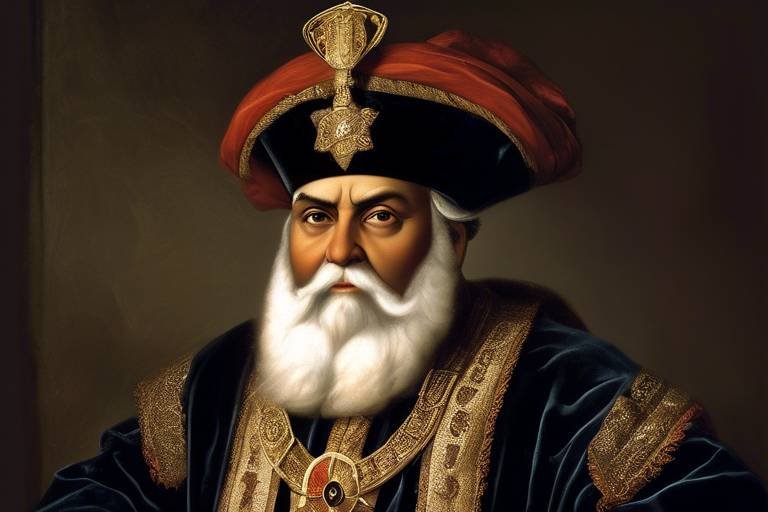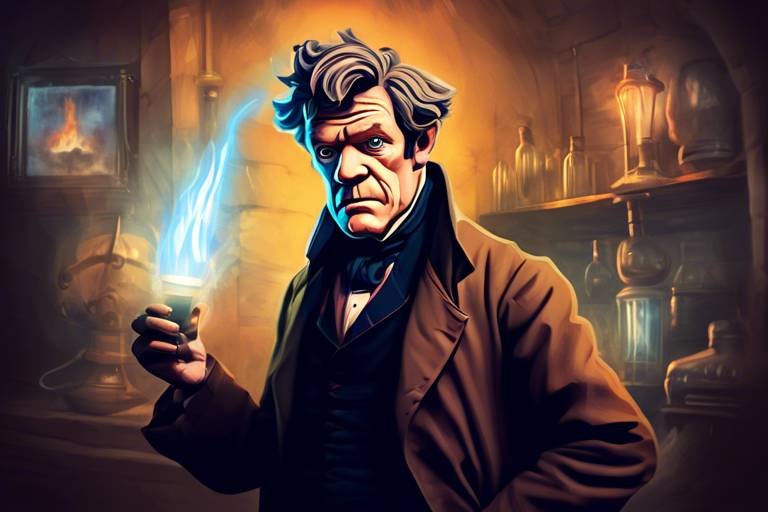Fleming: The Discoverer of Penicillin
Alexander Fleming, a Scottish scientist, is widely known as the discoverer of penicillin, a groundbreaking antibiotic that transformed the field of medicine. His serendipitous discovery revolutionized the treatment of bacterial infections and saved countless lives.
Early in his life, Fleming's upbringing in rural Scotland instilled in him a deep curiosity about the natural world. His education in medicine and microbiology provided him with the knowledge and skills necessary to pursue groundbreaking research in the field of antibiotics.
The discovery of penicillin occurred in 1928 when Fleming noticed that a mold called Penicillium notatum had antibacterial properties. This chance observation led to the development of the first antibiotic, penicillin, which proved to be a powerful weapon against bacterial infections.
Turning penicillin from a laboratory curiosity into a life-saving medicine was a challenging process that required collaboration with other scientists and pharmaceutical companies. The mass production of penicillin during World War II played a crucial role in saving the lives of wounded soldiers and civilians.
For his groundbreaking discovery, Alexander Fleming received numerous accolades and awards, including the Nobel Prize in Physiology or Medicine in 1945. His work laid the foundation for the development of modern antibiotics and established him as a pioneer in the field of microbiology.
The legacy of Alexander Fleming lives on in the continued importance of penicillin in healthcare today. Despite the challenges and controversies that have arisen in the use of antibiotics, Fleming's work remains a testament to the power of scientific discovery in improving human health.
Fleming's research on penicillin has inspired ongoing efforts to combat drug-resistant bacteria and develop new antibiotics. The future of antibiotics hinges on innovative research and collaboration across scientific disciplines to address the growing threat of antibiotic resistance.

Early Life and Education
This article explores the life and work of Alexander Fleming, the scientist credited with the discovery of penicillin, a groundbreaking antibiotic that revolutionized medicine.
Alexander Fleming was born on August 6, 1881, in Lochfield, Scotland. Growing up on a farm, he developed a deep curiosity for nature and science. His early exposure to the natural world sparked his interest in biology and medicine. Fleming's education began at the Darvel School, where his teachers recognized his exceptional intellect and passion for learning.
After completing his basic education, Fleming attended the Royal Polytechnic Institution in London, where he studied bacteriology, immunology, and chemistry. It was during this time that he honed his research skills and developed a keen interest in studying infectious diseases.
Later, Fleming pursued a medical degree at St. Mary's Hospital Medical School, where he delved deeper into the field of microbiology. His education and training provided him with the foundation needed to make groundbreaking discoveries in the field of medicine.
The serendipitous discovery of penicillin by Alexander Fleming in 1928 marked a turning point in the history of medicine. While conducting research on staphylococci bacteria, Fleming noticed that a mold called Penicillium notatum had contaminated one of his petri dishes. To his surprise, he observed that the mold inhibited the growth of the surrounding bacteria.
This accidental observation led Fleming to further investigate the mold's antibacterial properties, eventually identifying penicillin as a potent antibiotic. His discovery laid the foundation for the development of one of the most important medical advancements of the 20th century.
Following the discovery of penicillin, Fleming and his colleagues worked tirelessly to isolate and purify the antibiotic for medical use. The development process involved testing the effectiveness of penicillin on various bacterial infections and optimizing production methods to ensure its widespread availability.
By the early 1940s, penicillin was being mass-produced and used to treat wounded soldiers during World War II. The successful development of penicillin as a life-saving medication revolutionized the treatment of infections and paved the way for the era of antibiotics.
During World War II, the availability of penicillin played a crucial role in saving the lives of countless soldiers and civilians. The antibiotic proved to be highly effective in treating infections caused by war wounds, reducing mortality rates and improving overall healthcare outcomes on the battlefield.
Penicillin's impact on World War II not only changed the course of medical history but also highlighted the importance of timely and effective medical interventions in times of crisis.
Alexander Fleming's groundbreaking discovery of penicillin earned him widespread recognition and numerous accolades. In 1945, he was awarded the Nobel Prize in Physiology or Medicine for his contribution to the field of antibiotics. Fleming's work continues to be celebrated for its profound impact on healthcare and medicine.
Fleming's legacy in medicine is enduring, with penicillin remaining a cornerstone of modern healthcare practices. The widespread use of antibiotics inspired by his work has saved countless lives and continues to be instrumental in combating infectious diseases worldwide.
Despite its significant benefits, the development and use of penicillin have not been without challenges and controversies. Issues such as antibiotic resistance, overprescription, and the environmental impact of antibiotic production have raised concerns within the medical community and society at large.
Addressing these challenges requires ongoing research, responsible antibiotic stewardship, and global cooperation to ensure the effectiveness and sustainability of antibiotics for future generations.
The legacy of Alexander Fleming's discovery continues to inspire research and innovation in the field of antibiotics. Scientists are exploring new ways to combat drug-resistant bacteria, develop novel antibiotics, and improve existing treatment options to address evolving healthcare needs.
The future of antibiotics lies in sustainable practices, interdisciplinary collaboration, and a commitment to preserving these life-saving medications for generations to come.
Stay tuned for our FAQ section, where we address common inquiries about Alexander Fleming, penicillin, and the impact of antibiotics on modern medicine.

Discovery of Penicillin
Let's delve into the fascinating story of the discovery of penicillin by the brilliant mind of Alexander Fleming. It was a moment that forever changed the course of medicine and saved countless lives. Imagine a world without this life-saving antibiotic, where infections ran rampant with no effective treatment in sight.
In 1928, in a cluttered laboratory at St. Mary's Hospital in London, Fleming made a serendipitous discovery that would shape the future of medicine. He noticed that a mold called Penicillium notatum had contaminated one of his petri dishes containing bacteria. To his surprise, the bacteria near the mold were being destroyed, creating a clear zone where no bacteria could grow. This accidental observation led to the identification of penicillin, the first antibiotic known to man.
Penicillin's discovery was like finding a hidden treasure in a sea of uncertainty. Fleming's keen observation and curiosity paved the way for a groundbreaking medical breakthrough. The antibiotic properties of penicillin were soon recognized, and its potential to combat deadly infections was unleashed.
Imagine the excitement and awe that must have filled the laboratory as Fleming realized the significance of his discovery. It was like a light bulb moment, illuminating a path towards a future where bacterial infections could be effectively treated and lives could be saved.
From that moment on, the world of medicine was forever changed. The accidental discovery of penicillin by Alexander Fleming was a stroke of luck that altered the course of history, ushering in a new era of medical treatment and saving countless lives along the way.

Development of Penicillin as Medicine
After Alexander Fleming's serendipitous discovery of penicillin, the development of this revolutionary antibiotic as a medicine was a significant challenge. Scientists faced the task of scaling up production methods to meet the growing demand for this life-saving drug. The process involved optimizing fermentation techniques to cultivate the Penicillium mold and extract the active compound efficiently. This development phase required meticulous experimentation and collaboration between researchers in various scientific disciplines.
One of the key milestones in the development of penicillin was the work of a team of scientists led by Howard Florey and Ernst Chain. They successfully purified penicillin in a form that was suitable for human use, paving the way for large-scale production. This breakthrough marked a turning point in the history of medicine, as penicillin became the first widely available antibiotic capable of combating a wide range of bacterial infections.
To ensure the widespread availability of penicillin, pharmaceutical companies played a crucial role in the mass production and distribution of the antibiotic. The development of efficient production methods allowed penicillin to be used on a large scale, leading to a significant reduction in mortality rates from bacterial infections.
The development of penicillin as a medicine also raised ethical considerations regarding access to this life-saving drug. The high cost of production and limited supply initially restricted the availability of penicillin to certain groups of patients. Efforts were made to address these issues and make penicillin accessible to those in need, highlighting the importance of equitable healthcare distribution.
Overall, the development of penicillin as a medicine marked a groundbreaking achievement in the field of healthcare. The successful transformation of a laboratory discovery into a widely used antibiotic demonstrated the power of scientific innovation in improving human health and saving lives.
- How did Alexander Fleming discover penicillin?
- What impact did penicillin have on medicine?
- Who was involved in the development of penicillin as a medicine?
- Why was the development of penicillin considered a significant milestone in healthcare?
Alexander Fleming discovered penicillin in 1928 when he noticed that a mold, Penicillium notatum, had antibacterial properties that could kill a wide range of harmful bacteria.
The discovery of penicillin revolutionized medicine by introducing the first widely available antibiotic that could effectively treat bacterial infections, leading to a significant reduction in mortality rates.
Howard Florey and Ernst Chain played a crucial role in purifying penicillin for human use, contributing to the successful development and mass production of the antibiotic.
The development of penicillin marked a significant milestone in healthcare as it was the first effective antibiotic that could combat a wide range of bacterial infections, saving countless lives and revolutionizing medical treatment.

Impact on World War II
During World War II, the impact of Alexander Fleming's discovery of penicillin was nothing short of revolutionary. The availability of this groundbreaking antibiotic transformed medical treatment on the battlefield, saving countless lives in the process. Soldiers wounded in combat faced a significantly lower risk of succumbing to infections, thanks to the introduction of penicillin into wartime medicine. The rapid and effective treatment of bacterial infections with penicillin played a crucial role in improving the survival rates of injured soldiers, changing the course of medical history during the war.

Recognition and Awards
Throughout his illustrious career, Alexander Fleming received numerous accolades and honors for his groundbreaking discovery of penicillin. One of the most prestigious awards he received was the Nobel Prize in Physiology or Medicine in 1945, which he shared with Howard Florey and Ernst Boris Chain. This recognition solidified his place in history as a pioneer in the field of antibiotics.
In addition to the Nobel Prize, Fleming was also knighted by King George VI in 1944 for his contributions to medicine. This knighthood elevated his status in the scientific community and brought further attention to the importance of his work in the development of penicillin.
Furthermore, Fleming was elected as a Fellow of the Royal Society in 1943, a highly esteemed scientific organization in the United Kingdom. This recognition from his peers highlighted the significance of his research and its impact on the field of medicine.
Aside from these major awards and honors, Fleming received numerous other accolades from scientific institutions and organizations around the world. His work with penicillin was truly revolutionary and paved the way for the development of modern antibiotics that have saved countless lives.
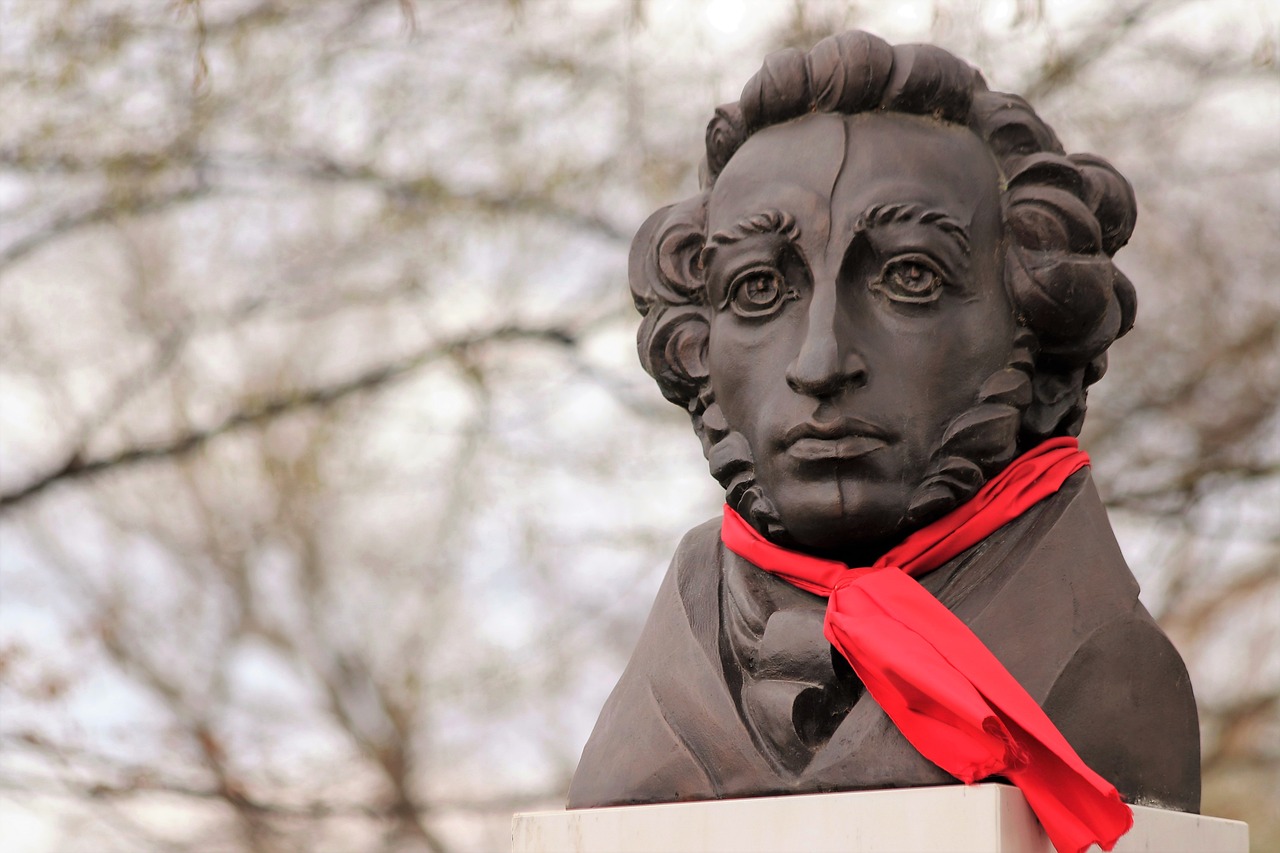
Legacy in Medicine
This article explores the life and work of Alexander Fleming, the scientist credited with the discovery of penicillin, a groundbreaking antibiotic that revolutionized medicine.
Alexander Fleming's discovery of penicillin left a lasting legacy in the field of medicine that continues to shape healthcare practices today. His breakthrough in isolating and identifying the antibiotic properties of penicillin marked a pivotal moment in medical history, opening the doors to a new era of infectious disease treatment.
The impact of penicillin on medicine can be likened to a powerful tool that revolutionized the way infections were treated, akin to a magic wand that could combat deadly bacteria effectively. The development of penicillin paved the way for the creation of numerous other antibiotics, expanding the arsenal of medications available to healthcare providers.
Furthermore, Fleming's work highlighted the importance of serendipity and keen observation in scientific discoveries. His accidental discovery of penicillin in a petri dish that had been contaminated with mold showcased the unpredictable nature of scientific breakthroughs and the significance of being open to unexpected findings.
The legacy of penicillin in medicine extends beyond its initial discovery, as it continues to be a cornerstone in the treatment of various bacterial infections. The widespread use of penicillin and its derivatives has saved countless lives and alleviated suffering, cementing its status as one of the most significant medical advancements in history.
Moreover, Fleming's legacy serves as a reminder of the profound impact that individual researchers can have on the advancement of medical science. His dedication to understanding the mechanisms of infection and his relentless pursuit of solutions have inspired generations of scientists to push the boundaries of knowledge and innovation in healthcare.
In conclusion, Alexander Fleming's discovery of penicillin has left an indelible mark on the field of medicine, shaping the way infections are treated and underscoring the importance of scientific curiosity and perseverance. His legacy serves as a beacon of hope for future medical breakthroughs and a testament to the transformative power of human ingenuity in improving global health.

Challenges and Controversies
Challenges and controversies surrounded the development and use of penicillin, despite its groundbreaking impact on medicine. One major challenge was the production of penicillin on a large scale. Initially, it was difficult to mass-produce the antibiotic efficiently, leading to shortages in supply and high production costs.
Another significant challenge was the emergence of penicillin-resistant bacteria. As the use of the antibiotic became widespread, some strains of bacteria developed resistance to its effects, rendering it ineffective in treating certain infections. This raised concerns about the long-term effectiveness of penicillin in combating bacterial diseases.
Controversies also arose regarding the ethical considerations of using penicillin. Questions were raised about who should have access to the antibiotic, how it should be distributed, and whether its benefits outweighed potential risks, such as allergic reactions and overuse leading to resistance.
Moreover, there were debates within the medical community about the appropriate use of penicillin. Some physicians advocated for its widespread use to save lives, while others cautioned against overprescription and the development of resistance. Balancing the benefits of penicillin with the risks and challenges posed a complex dilemma for healthcare professionals.

Continued Research and Future of Antibiotics
Continued research in the field of antibiotics is crucial to combat the growing threat of drug-resistant bacteria. Scientists and researchers worldwide are actively working to discover new antibiotics and improve existing ones to stay ahead of evolving pathogens. The legacy of Alexander Fleming's discovery of penicillin continues to inspire innovative approaches to antibiotic development.
One area of focus in antibiotic research is the exploration of alternative sources, such as natural compounds from plants and marine organisms, that may have antimicrobial properties. These natural sources offer a potential treasure trove of new antibiotics that could be key in addressing antibiotic resistance.
Furthermore, advancements in technology, such as genomics and bioinformatics, have revolutionized the way antibiotics are discovered and developed. By understanding the genetic makeup of bacteria and how they evolve resistance, researchers can design more effective antibiotics that target specific mechanisms of bacterial survival.
Collaboration between scientists, pharmaceutical companies, and healthcare providers is essential to ensure that new antibiotics are developed responsibly and made available to those in need. The careful stewardship of antibiotics, including proper prescribing practices and infection control measures, is crucial to preserving the effectiveness of these life-saving drugs for future generations.
In addition to discovering new antibiotics, researchers are also investigating alternative treatment strategies, such as phage therapy and immunotherapies, to combat bacterial infections. These approaches offer promising avenues for treatment, especially in cases where traditional antibiotics may be less effective.
The future of antibiotics lies in a multidisciplinary approach that combines scientific innovation, responsible stewardship, and global collaboration. By building on the foundation laid by pioneers like Alexander Fleming, we can continue to stay one step ahead of drug-resistant bacteria and ensure a healthier future for all.
Frequently Asked Questions
- What is penicillin?
Penicillin is a widely used antibiotic that was discovered by Alexander Fleming. It is effective in treating various bacterial infections by inhibiting the growth of bacteria.
- How was penicillin discovered?
Penicillin was discovered by Alexander Fleming in 1928 when he noticed that a mold called Penicillium notatum had antibacterial properties. This accidental discovery led to the development of the first antibiotic.
- What impact did penicillin have on World War II?
During World War II, penicillin played a crucial role in treating infections among soldiers, reducing mortality rates significantly. Its availability revolutionized medical treatment on the battlefield.
- Why is Alexander Fleming credited with the discovery of penicillin?
Alexander Fleming is credited with the discovery of penicillin because he was the first to recognize its potential as an antibiotic and conducted further research to develop it into a usable medicine.
- What is the legacy of penicillin in modern medicine?
The discovery of penicillin by Alexander Fleming revolutionized medicine by introducing the era of antibiotics, saving millions of lives and paving the way for the development of other life-saving drugs.

